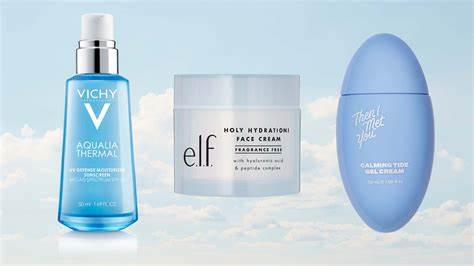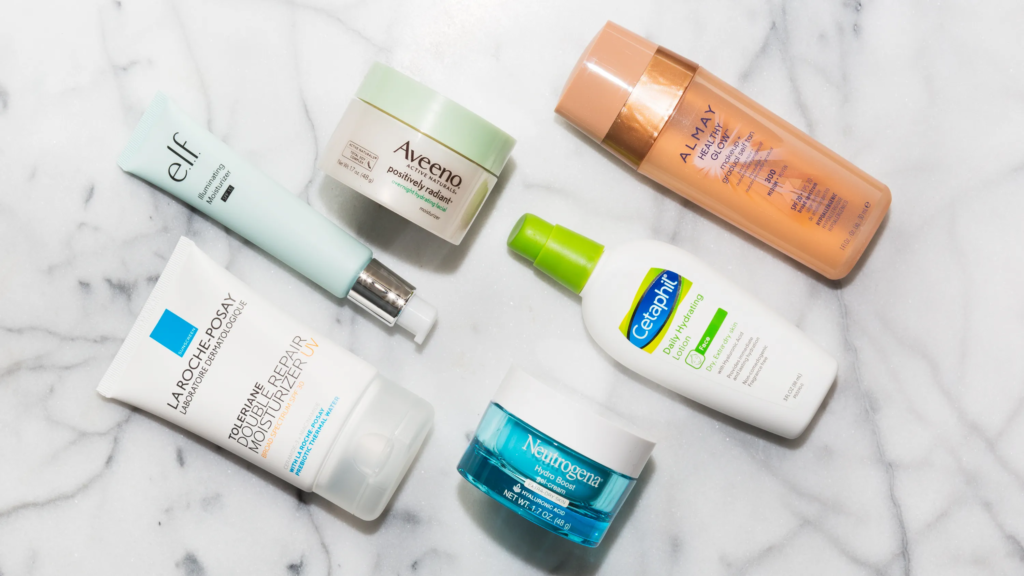Moisturiser, the unsung hero of skincare, is often overlooked in the pursuit of perfect skin. While cleansers and serums might steal the limelight, a good moisturizer is the cornerstone of any effective skincare routine. It hydrates, protects, and restores your skin’s natural barrier, leaving it plump, radiant, and youthful. But with countless options available, finding the best moisturizer can be daunting. Let’s delve into the world of moisturizers to help you make an informed choice.
Understanding Your Skin Type
The first step to finding the best moisturizer is identifying your skin type. This will determine the specific ingredients and formulations that will work best for you.
Oily Skin: Characterized by a shiny T-zone and prone to breakouts, oily skin needs a lightweight, oil-free moisturizer. Look for ingredients like hyaluronic acid, niacinamide, and salicylic acid.
Dry Skin: Often flaky, itchy, and tight, dry skin requires a rich, hydrating moisturizer. Look for ingredients like ceramides, hyaluronic acid, and shea butter.
Combination Skin: A mix of oily and dry areas, combination skin needs a balanced moisturizer. Look for lightweight formulas with hydrating ingredients like hyaluronic acid and glycerin.
Sensitive Skin: Prone to redness, irritation, and allergies, sensitive skin requires a gentle, hypoallergenic moisturizer. Look for fragrance-free options with calming ingredients like aloe vera and chamomile.
Key Ingredients to Look For
Certain ingredients are essential for healthy skin. Here’s a breakdown of some key players:
Ceramides: These lipids help repair the skin’s protective barrier, preventing moisture loss.
Niacinamide: A versatile ingredient that improves skin tone, texture, and hydration.
Hyaluronic Acid: A humectant that draws moisture into the skin, leaving it plump and hydrated.
Shea Butter: Rich in fatty acids, shea butter deeply moisturizes and nourishes the skin.
Aloe Vera: Soothes inflammation, hydrates, and promotes healing.
Vitamin E: An antioxidant that protects the skin from damage.
The Importance of SPF
While not technically a moisturiser, sunscreen is essential for protecting your skin from harmful UV rays. Look for a moisturiser with SPF 30 or higher for daily sun protection.
Choosing the Right Moisturizer
With so many options available, selecting the right moisturiser can be overwhelming. Consider the following factors:
Skin Type: As mentioned earlier, choose a moisturiser that suits your skin type.
Skin Concerns: If you have specific concerns like acne, aging, or hyperpigmentation, look for moisturisers with targeted ingredients.
Texture: Choose a texture that you enjoy applying. Creams are rich and hydrating, while gels are lightweight and refreshing. Lotions offer a balance between the two.
Budget: Moisturisers come in a wide range of prices. Consider your budget and prioritize ingredients over brand name.
Moisturising Routine
To maximize the benefits of your moisturiser, incorporate it into a consistent skincare routine:
Cleanse: Remove dirt, oil, and makeup with a gentle cleanser.
Tone: Balance your skin’s pH with a toner.
Serum: Apply targeted serums for specific concerns.
Sunscreen: Apply SPF 30 or higher during the day.
Common Moisturizer Myths
Let’s debunk some common misconceptions about moisturisers:
Myth: Oily skin doesn’t need moisturiser.
Fact: All skin types need hydration, even oily skin.
Myth: Moisturizer clogs pores.
Fact: Choosing the right moisturiser for your skin type won’t clog pores.
Myth: Expensive moisturisers are always better.
Fact: The price doesn’t always reflect the quality. Look for effective ingredients rather than fancy packaging.
Best Moisturizers for Different Skin Types
While individual needs vary, here are some popular options for different skin types:
Oily Skin:
CeraVe Oil-Free Moisturizing Lotion
Neutrogena Hydro Boost Water Gel
La Roche-Posay Effaclar Mat Moisturizer
Dry Skin:
Cetaphil Daily Moisturizing Cream
Aveeno Daily Moisturizing Lotion
First Aid Beauty Ultra Repair Cream
Combination Skin:
Clinique Dramatically Different Moisturising Gel
Olay Regenerist Whip Face Moisturizer
Kiehl’s Ultra Facial Cream
Experiment with different products to discover what works best for your skin. With consistent use and proper care, you’ll achieve a healthy, hydrated, and radiant complexion.

FAQs
Understanding Your Skin
Q: What is a moisturiser and why do I need it?
A: A moisturiser is a skincare product that helps hydrate and protect your skin. It prevents dryness, flakiness, and premature aging. Regular use improves skin texture and elasticity.
Q: What is my skin type?
A: Determining your skin type is crucial for choosing the right moisturizer. Common skin types include oily, dry, combination, sensitive, and normal. You can use online quizzes or consult a dermatologist for accurate identification.
Q: How often should I moisturise?
A: Ideally, you should moisturise twice a day, morning and night. For dry skin, you might need more frequent applications.
Choosing the Right Moisturiser
Q: What ingredients should I look for in a moisturiser?
A: Look for hydrating ingredients like hyaluronic acid, glycerin, ceramides,and shea butter. For specific concerns, consider products with antioxidants (vitamin C, E), retinol, or SPF.
Q: Can I use the same moisturiser for day and night?
A: While some moisturisers work for both day and night, it’s often beneficial to use different products. Day moisturisers should ideally contain SPF, while night creams can be richer and more hydrating.
Q: What is the difference between a cream, lotion, and gel moisturiser?
A: Creams are thicker and richer, suitable for dry skin. Lotions are lighter and absorb quickly, ideal for normal to oily skin. Gels are lightweight and water-based, perfect for oily or acne-prone skin.
Moisturising for Specific Concerns
Q: How do I find a moisturiser for acne-prone skin?
A: Look for oil-free, non-comedogenic moisturisers with ingredients like salicylic acid or benzoyl peroxide to help prevent breakouts.
Q: What moisturiser is best for dry skin?
A: Opt for rich, creamy moisturisers containing humectants (hyaluronic acid) and emollients (shea butter, coconut oil) to deeply hydrate your skin.
Q: How do I moisturise sensitive skin?
A: Choose fragrance-free, hypoallergenic moisturisers with minimal ingredients. Look for products labeled “sensitive skin” or “fragrance-free.”
Q: Can moisturisers help with anti-aging?
A: Yes, moisturisers containing retinol, peptides, and antioxidants can help reduce the appearance of fine lines and wrinkles, promoting a youthful glow.
Additional Tips
Q: Can I moisturise too much?
A: Over-moisturizing can clog pores and lead to breakouts. Use the right amount for your skin type.
Q: Can I use a DIY moisturiser?
A: While DIY moisturisers can be fun, ensure the ingredients are safe for your skin and consult with a dermatologist if you have concerns.
Q: When should I start using a moisturiser?
A: It’s recommended to start using a moisturiser in your early teens to protect your skin from premature aging.
Remember: The best moisturiser is the one that suits your skin type and addresses your specific concerns. It’s always a good idea to patch test new products before applying them to your entire face.
Helpful Resources:
Skincare Guides:
www.healthline.com
Skincare Guides
Moisturizer Reviews:
www.youtube
To Read More; click here